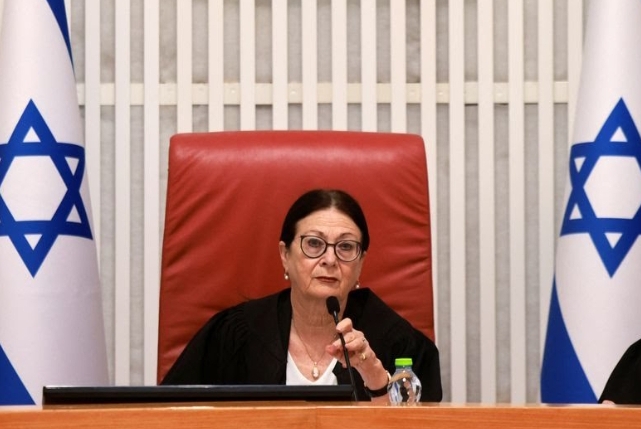The law states that only the prime minister himself or the cabinet, with a two-thirds majority, can declare the leader unfit, and only “due to physical or mental incapacity.”
Israel’s Supreme Court to Decide on Law That Could Determine Netanyahu’s Fate


Israel's Supreme Court heard arguments on Thursday against a law passed by the ruling coalition limiting conditions for any removal of Prime Minister Benjamin Netanyahu from office.
Judges were considering three pleas demanding the legislation be scrapped or deferred until after the next elections.
It was passed by parliament in March as part of Prime Minister Benjamin Netanyahu's government's comprehensive judicial reform.
The law determined a prime minister could only be declared unfit for office for medical or mental reasons. Only the prime minister or their government can determine a leader's unfitness.
Critics argued the legislative change removed one of the last checks on the executive.
Justice Minister Yariv Levin condemned the hearing as "an attempt to overturn the elections" that returned Netanyahu to power in December.
But Attorney General Gali Baharav-Miara said the law seemed to be designed specifically to help Netanyahu and called for it to be repealed.
Thursday's hearing was one of several legal challenges against the government's judicial reform.
The Supreme Court was also preparing to rule on challenges to a July amendment that limits its power to overrule some cabinet-level decisions based on "reasonableness."
Next month, the court is due to hear appeals relating to convening a committee for appointing judges.
Weekly mass protests against the government's judicial reform program have been taking place since January 2023.
Demonstrators argue it is part of a plan to preserve Netanyahu's tenure despite a series of graft charges against him.
He had denied charges of fraud, breach of trust, and accepting bribes in three separate cases involving influential media moguls and wealthy associates.
The government argues the overhaul is necessary to rebalance powers between elected officials and judges.

 বাংলা
বাংলা  Spanish
Spanish  Arabic
Arabic  French
French  Chinese
Chinese 
